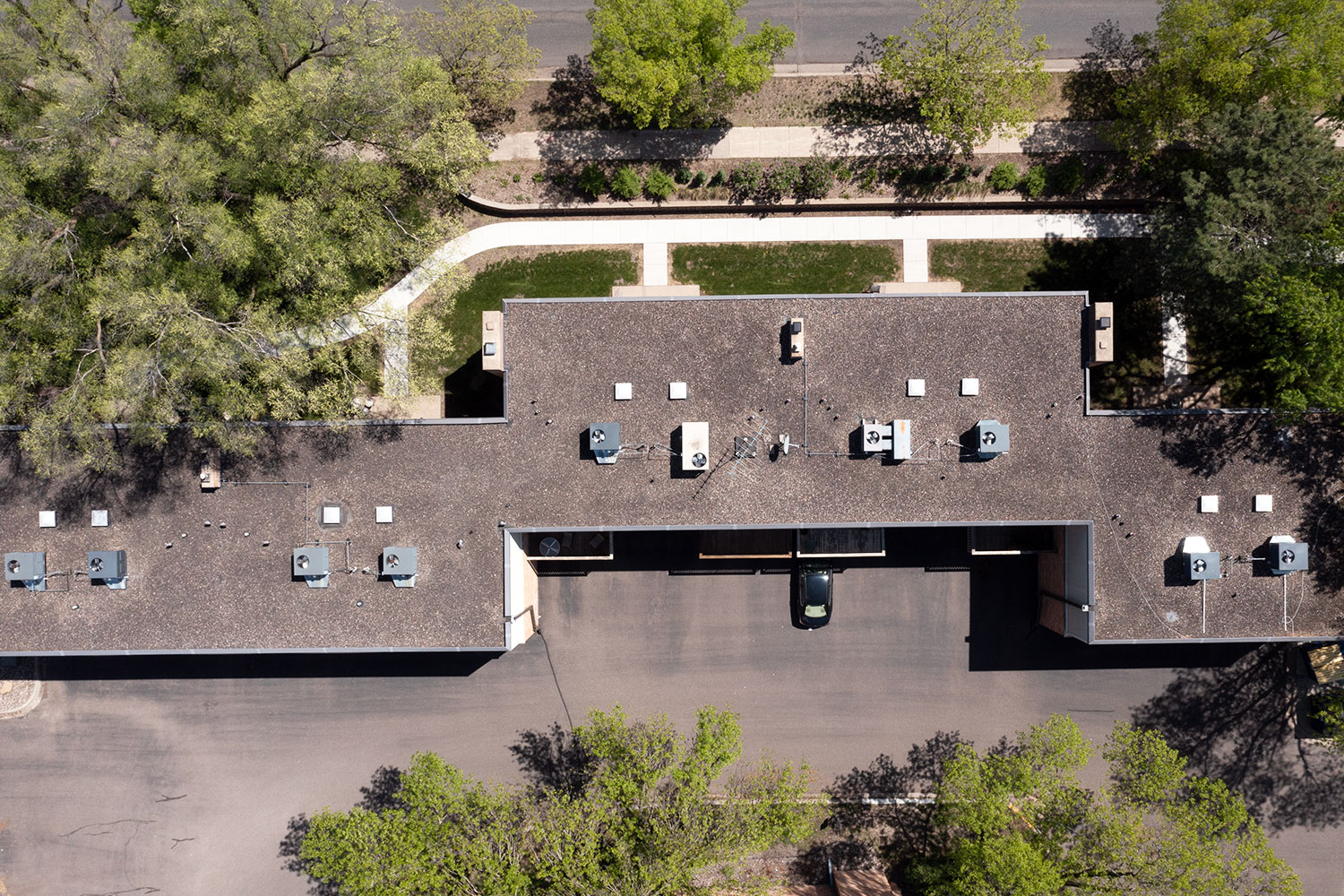Do you know how your commercial roof survived winter?
This past winter was historically mild, with minimal snowfall and several spells of warmer weather. While you might think that this means your flat commercial roof didn’t experience any damage, the truth is that it still went through a lot and may need some attention.
Factors Affecting Commercial Roof Durability
There are several factors that can affect the durability of your commercial roof during winter. Even with mild weather conditions, these factors can have a significant impact on its overall condition:
- Extreme Temperatures – While our winter may have been milder than usual, there can still be extreme temperature fluctuations that can cause your roof to expand and contract. This constant movement can lead to cracks and leaks in the roofing materials.
- Snow Accumulation – Even with minimal snowfall, any amount of snow accumulation on your roof adds weight to the structure. If not cleared properly, this added weight can put stress on your roof and potentially cause damage.
- Ice Dams – When snow on your roof melts and then refreezes, it can create ice dams that block proper drainage. This can lead to water pooling on your roof and causing leaks or structural damage.
- Wind – Winter winds are still a concern for commercial roofs, even in mild winters. Strong gusts of wind can lift and tear roofing materials, leaving your roof vulnerable to leaks and other damage.
- Exposure To The Elements – Winters with little to no snowfall can be particularly hard on flat commercial roofs. A reasonable blanket of snow actually acts to insulate and protect your roof. Without snow cover, your roof is more exposed to the elements and can be susceptible to damage from UV rays and harsh weather conditions like freeze-thaw cycles.
A seasonal roof inspection is your best defense against commercial roof damage and leaks. By following these steps, you can ensure that your roof is in good condition and ready to face the rains of spring and summer as well as the next winter season.
Signs of Damage
The first step in assessing the condition of your roof is to have a commercial roofing expert inspect your roof and look for signs of damage.Here are some of the signs that could indicate that repairs are needed:- Punctures, cuts, or tears in the roofing material
- Cracks in the roof surface
- Blisters or bubbles in the roof membrane
- Ponding water on the roof surface
- Loose or missing flashing
- Damaged or clogged drainage systems
- Leaks or water stains on the ceiling
If an inspection reveals any of these signs, you’ll want to act quickly to schedule repairs to prevent leaks during the rainy months ahead.
Common Winter Roof Problems
Winter can cause a variety of issues for flat commercial roofs. Here are some of the most common issues:
Snow Buildup
Heavy snow accumulation on your roof can put a lot of stress on the structure, leading to roof collapses or leaks.
Ice Dams
Ice dams form when snow melts and refreezes at the roof’s edge or under snowpack, creating a barrier that prevents water from draining properly. This can cause water to back up under the roofing material, leading to leaks.
Freezing and Thawing
Fluctuating temperatures can cause roofing materials to expand and contract, leading to cracks and damage.
Wind Damage
Strong winds can lift or dislodge roofing materials, creating gaps that allow water to penetrate the roof.
Preparing for Repairs
If your flat commercial roof has been damaged during the winter, preparing for repairs is essential.
Here are some steps to take:
- Call a professional roofing contractor: A qualified commercial roofing contractor can assess the damage and recommend the necessary repairs.
- Schedule repairs: Once you have a repair plan in place, schedule the repairs as soon as possible to prevent further damage.
- Consider preventive measures: To avoid future damage, consider installing measures such as snow guards, heating cables, or better drainage systems recommended by your commercial roofing company.
- Regular maintenance: Regular maintenance can help prevent damage and extend the life of your commercial flat roof. Schedule regular inspections and maintenance with a professional roofing contractor.
Is Your Roof Already Leaking?
If you’ve noticed stains or leaks on your ceiling, taking action quickly is crucial. Melting snow can quickly cause significant damage, so contact a professional roofing contractor immediately to assess the situation and suggest repairs.
Preparing Your Comercial Roof For Spring
Winter can be tough on commercial flat roofs, but with proper maintenance and repairs, you can ensure your roof is in good condition and draining properly. By looking for signs of damage, addressing common winter roof problems, and preparing for repairs, you can protect your investment and extend the life of your flat commercial roof.
By taking a proactive approach to assessing the condition of your commercial flat roof after winter, you can ensure that it is in good condition and ready for the warm weather ahead. Be sure to assess the damage before the next winter season – now is the time to find out how well your commercial roof survived winter.
Our Top-Site Preventative Maintenance Program is the perfect way to find out the current condition of your roof and keep it in tip-top condition year-round. Contact us today to get started managing your commercial roof maintenance costs.Mint Roofing – Commercial Roofing Excellence – New Construction, Reroofing, Service & Maintenance
Phone: 952-473-8080 24-Hour Line: 952-473-8181 Email: info@mintroofing.com
Frequently Asked Questions:
How often should I have my flat commercial roof inspected?
You should have your flat commercial roof inspected at least twice a year, in the spring and fall, to check for any damage or potential issues.
How long does a flat commercial roof last?
The lifespan of a flat commercial roof depends on several factors, including the type of roofing material, the climate, and how well the roof is maintained. Generally, with proper maintenance and repairs, a flat commercial roof can last between 10 and 25 years.
Can I inspect my flat commercial roof myself?
Inspecting your flat commercial roof yourself is not recommended, as it can be dangerous, and you may not be able to identify all the potential issues. It’s best to hire a professional roofing contractor to perform the inspection.
How can I prevent ice dams on my flat commercial roof?
To prevent ice dams, make sure your roof is adequately insulated and ventilated. You can also install heating cables or use a roof rake to remove snow from the roof before it has a chance to melt and refreeze.


